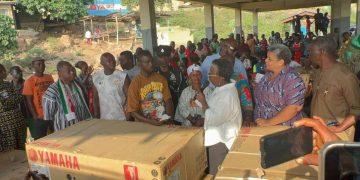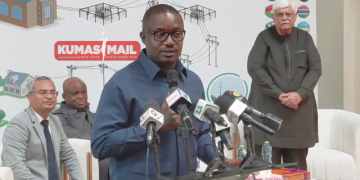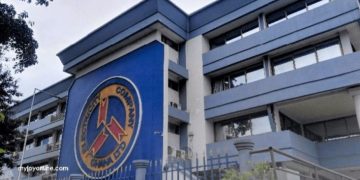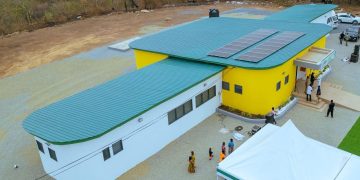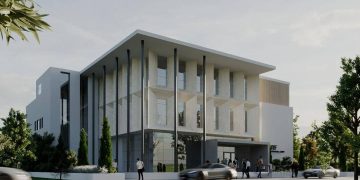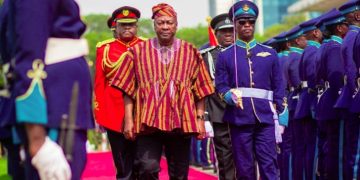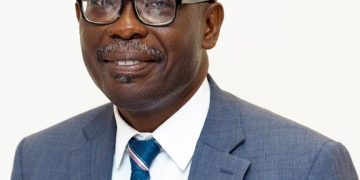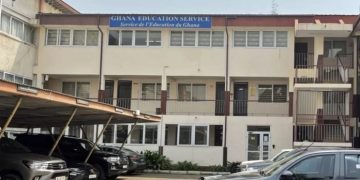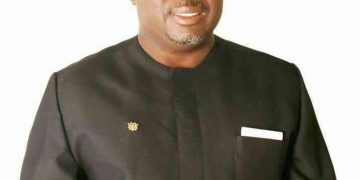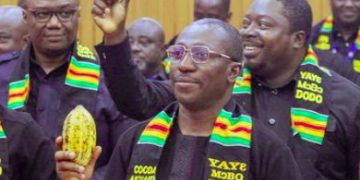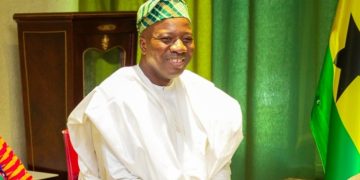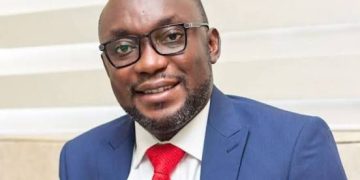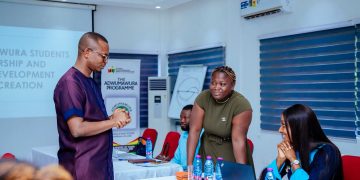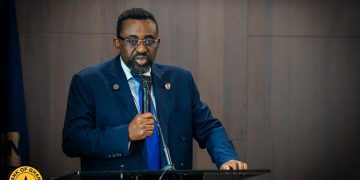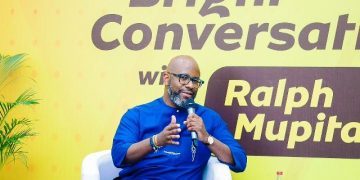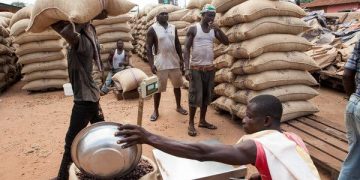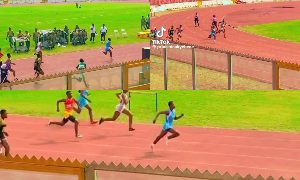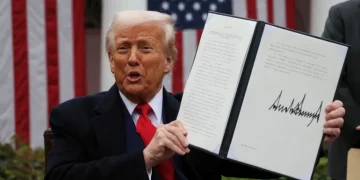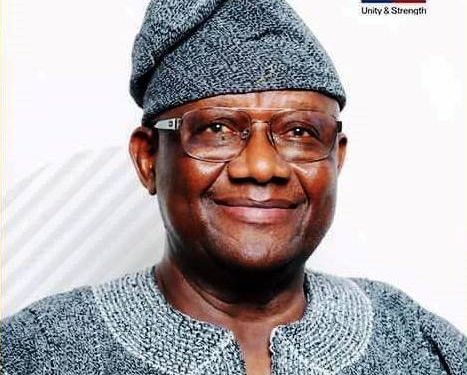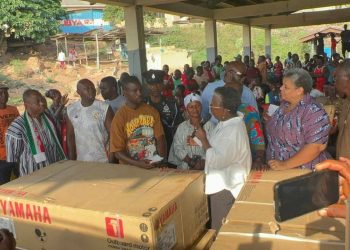Former New Patriotic Party (NPP) National Chairman and current aspirant for the position, Paul Awentami Afoko, has called on Ghanaians to embrace civic courage as a fundamental duty for national progress.
Speaking at the fifth Dialogue Public Lecture held at the Ama Ata Aidoo Centre for Creative Writing at the African University of Communications and Business (AUCB) on November 21, 2025, Afoko emphasized that defending principles, speaking truth to power, and protecting democracy should transcend partisan interests.
The event, moderated by Sabina Sarsa of AUCB’s School of Research and Graduate Studies, was organized under the theme “Civic Courage: Speaking Up, Standing Up, and Making a National Impact.” It forms part of the university’s effort to create a safe platform where young Ghanaians can explore the real-life demands of public engagement.
“Civic courage is the willingness to defend principles even when it is dangerous, to speak truth even when truth is unwelcoming,” Afoko told the audience. “It is what holds a nation together, because it is rooted in moral fibre, not political colours.”
Afoko opened his presentation by paying tribute to the late Ama Ata Aidoo, describing her as an “outstanding woman who refused to conform to the subjugation of women and the limitations placed on Africans.” Her life, he said, embodies the conviction and bravery the current generation must adopt. Quoting Aidoo’s famous assertion that “true courage is not the absence of fear but the presence of conviction, conviction, not comfort,” Afoko emphasized that speaking up does not require the absence of fear, but a deep sense of responsibility and moral clarity even when the environment is unsupportive.
He recounted his own ordeal during the 1981 coup that returned the late Jerry John Rawlings to power. At the time, he publicly challenged the legitimacy of the takeover and called for the restoration of power to the democratically elected President Dr. Hilla Liman, despite not being a member of Liman’s party, the People’s National Party (PNP). His stance, he said, was driven not by politics but by conviction and a sense of justice. “Speaking up is expensive, but keeping silent is more expensive. Silence would have betrayed my conviction, and it would have opened a dangerous gate that could have harmed the country,” he recalled.
Afoko’s outspoken position led to his arrest, detention without trial, and eventual imprisonment. He spent nearly two decades in exile before returning to Ghana when the political climate became safer.
He urged young Ghanaians to adopt the courage of non-conformists, insisting that Ghana’s progress depends on citizens willing to stand out, resist societal pressure, and question decisions before accepting them. “Living as a non-conformist in a conformist world means refusing to be swallowed by the crowd,” he said. “The ability to question actions before they happen is the trait the youth must adopt if Ghana truly wants progress.”
Afoko warned that corruption and tribalism remain threats to national development. “Corruption is everywhere, but when corruption becomes normal and tribalism becomes fashionable, then we have a problem,” he said. “If the distinguished minds of this country keep quiet, mediocrity will take over. And when that happens, the entire nation loses.”
The seasoned political figure emphasized that Ghana’s democratic ideals of freedom and justice depend largely on the willingness of the younger generation to speak up, challenge wrongdoing, and uphold integrity. “Our culture does not permit children or the youth to speak freely,” he acknowledged, “but that should never be an excuse to remain silent.” He challenged students and young citizens to resist cultural pressures that silence them, saying Ghana’s progress depends on conscientious citizens willing to question, criticize, and stand their ground when the nation’s values are threatened.
Reflecting on his experience, he said that courage shapes nations “more than fear ever will,” urging young Ghanaians to resist silence when democratic values are threatened. He stressed that standing out is not arrogance, but a duty. “You might not be noticed today, but you will be noticed eventually. The future belongs to those who refuse to be swallowed by the crowd,” he said.
Afoko’s address set the tone for a reflective and thought-provoking interaction with the audience, reinforcing the central message that civic courage is an essential daily practice, not a momentary act. The Dialogue Public Lecture series continues to position AUCB as a hub for nurturing bold thinkers dedicated to national development.
Through his narrative, Afoko highlighted the importance of civic courage and non-conformity in broadening the national space for dissent, protecting integrity, and laying the foundation for Ghana’s multi-party democracy.
Source: kumasimail.com


